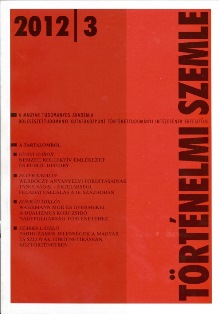Werbőczy anyanyelvi fordításainak tanulságai – értelmiségi feladatvállalás a 16. században
The Lessons of the Vernacular Translations of Werbõczy’s Tripartitum – The Intelligentsia’s Responsibility in the 16th Century
Author(s): Katalin PéterSubject(s): History
Published by: Magyar Tudományos Akadémia Bölcsészettudományi Kutatóközpont Történettudományi Intézet
Summary/Abstract: The Tripartitum of Werbõczy was translated into Hungarian, Croatian and German in the course of the 16th century by intellectuals who lived far from the heights of power, namely Balázs Veres, Gáspár Heltai, Ivan Pergosiø and August Wagner. Their aim was to orientate the simple people in the world of legislation. Their intention harmonised with the two great contemporary conceptions of social organisation. One of them was the so-called “gute Policey”, and the other the spread of practical knowledge, or as the author terms it, the “secularised Erasmian program”. In accordance with the practical experience of the age the measures indicated above should have been implemented upon commission from the ruling authorities. In Hungary, however, the task was undertaken by Protestant intellectuals. Elsewhere it may have been done by Catholics. The actors in this case were persons familiar with the expectations of the ordinary people. The outstanding success of vernacular prints shows that the demand for knowledge available in the vernacular was great in 16th-century Hungary.
Journal: Történelmi Szemle
- Issue Year: 2012
- Issue No: 03
- Page Range: 421-440
- Page Count: 20
- Language: Hungarian

